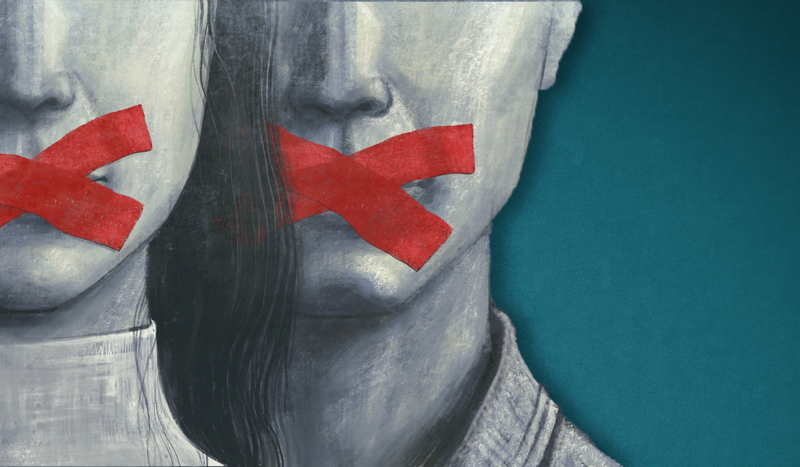
CV NEWS FEED // The Supreme Court on Monday heard oral arguments in a pair of cases in which Big Tech companies are challenging anti-censorship laws in Texas and Florida.
The tech lobby has argued that both of the 2021 laws violate Big Tech platforms’ First Amendment rights.
Texas and Florida passed the laws to protect the free speech rights of conservatives and moderates after online censorship by corporations intensified to unprecedented levels at the beginning of that year.
CBS reported Monday that in the twin cases, Texas and Florida “argue that the social media companies should be treated like any business and be restricted from removing posts or banning users from their platforms based upon their views.”
“But the social media companies counter that the laws infringe upon their editorial discretion, arguing that they should be treated more like news outlets,” CBS continued:
While Trump filed a brief in support of the state laws, arguing that a platform’s “decision to discriminate against a user” is not protected under the Constitution, the Biden administration filed a brief in support of the tech groups.
>> BIDEN ADMIN PAID GERMAN AGENCY TO HELP TEACHERS TURN KIDS AGAINST CONSERVATIVE MEDIA <<
The New York Times provided live coverage during the hearing. According to the Times’ Charlie Savage, Paul Clement – one of the attorneys representing the Big Tech companies in the case – argued that his clients were not censoring users with dissenting opinions.
Instead, Clement claimed that by banning users and removing content, the platforms were employing their “editorial judgment.”
Clement “contended that it was unconstitutional under the First Amendment to compel the companies to publish views against their wills,” Savage wrote.
Several justices pressed Clement on how far he was willing to take his “First Amendment” arguments.
The New York Times’ Abbie VanSickle reported that Justice Samuel Alito asked Clement “whether Uber could discriminate on the basis of viewpoint for whom its drivers pick up.”
Clement answered “that it could apply on comments on the driver, not on whether a driver would pick up a customer,” VanSickle noted.
Again from Savage:
Justice Neil Gorsuch asks whether tech companies like Gmail can delete emails and private direct messages on issues like race, politics and religion that the companies don’t agree with. Clement says that would have to be adjudicated based on how the equal protection clause applied but “this case involves editorial decisions at its heart.”
Justice Clarence Thomas signals skepticism that deplatforming users is expressive conduct by the social media companies. Clement says they are curating the content on their forums to keep off material that violates their terms of service, citing material that glorifies terrorism or suicide. This is an exercise of editorial discretion to make it less offensive for users or advertisers.
Clement, a Republican, served four years as the U.S. Solicitor General and two days as the acting U.S. Attorney General under the George W. Bush administration.
>> RELATED: CONSERVATIVE MEDIA AND TEXAS FILE SUIT ACCUSING BIDEN ADMIN OF CENSORSHIP <<
Senior Counsel Scott Wilkens of the Knight First Amendment Institute at Columbia University weighed in on the possible implications of the pending cases.
“The court here is being presented with diametrically opposed interpretations of the law,” Wilkens wrote. “[W]hat the court does could, on the one hand, allow the government free rein to regulate social media platforms, or, on the other, prohibit the government from regulating them at all.”
In an op-ed for FOX News, the Media Research Center’s (MRC) Dan Schneider and Tim Kilcullen stated that the “dispute” in both cases “comes down to one question: Do Big Tech companies have a constitutional right to censor other people?”
Schnieder and Kilcullen added that the MRC
has now documented more than 6,400 cases of censorship by firms such as Amazon, Google/YouTube, and Meta — including the egregious suppression of the New York Post Biden laptop story ahead of the 2020 election.
>> HOUSE REPORT: AGENCIES HELPED CENSOR CONSERVATIVES, BOOST DEMS IN 2020 <<
Last November, House Republicans released a report that outlined the allegedly vast extent of anti-conservative censorship in the run-up to the 2020 presidential election.
“[T]he federal government and universities pressured social media companies to censor true information, jokes, and political opinions,” the report stated:
This pressure was largely directed in a way that benefitted one side of the political aisle: true information posted by Republicans and conservatives was labeled as “misinformation” while false information posted by Democrats and liberals was largely unreported and untouched by the censors

